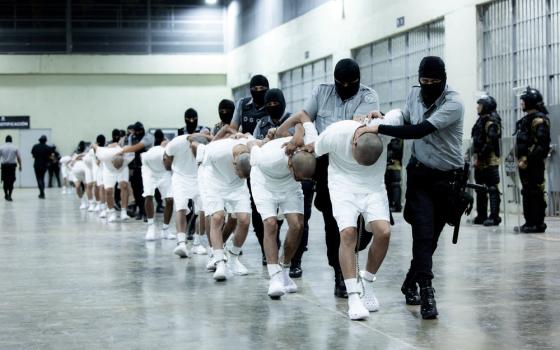By JOHN L. ALLEN JR.
Istanbul, Turkey
On day one of Benedict’s trip to Turkey, the major news headline around the world was his “flip-flop” on the question of Turkey’s candidacy to joint the European Union. In 2004, he had come out strongly against it, whereas in his meeting with Prime Minister Recep Tayyip Erdogan at the Ankara airport he appeared to change tack, issuing a basic green light.
Vatican spokesperson Fr. Federico Lombardi later clarified that while the pope had not taken a political position for or against Turkey’s admission, because that’s not his role, the Vatican nevertheless “views positively” Turkey’s growing closeness to Europe.
Yesterday, William Donohue of the Catholic League issued a statement blasting the press coverage, calling it “one of most embarrassing journalistic blunders to have occurred in some time.” He cited a line from the Common Declaration signed by Pope Benedict and Patriarch Bartholomew I, saying the two figures view positively the formation of the European Union, but cautioning the rights of minorities have to be protected, including religious freedom.
“Pope Benedict XVI has not flip-flopped: admission of Turkey into the European Union is conditioned on its willingness to respect the religious rights of minorities (something it has failed to do),” Donohue wrote.
This morning, a senior Western diplomat in Rome called me in light of this confusion to ask what he ought to report to his government about the pope's position.
What’s the deal?
First of all, one has to distinguish between the corporate position of the Holy See and the personal position of Joseph Ratzinger. In fact, there has been no real change at all in the former. Vatican diplomats have always said that they are officially neutral on the question of Turkey’s admission, but that if Turkey is to join the EU, it should be required to meet European standards of human rights, the so-called “Copenhagen criteria,” especially with regard to religious freedom.
As far as Ratzinger personally is concerned, Donohue has a point that he has not “flip-flopped,” because that would suggest a 180-degree reversal from firm opposition to clear support. That’s not the situation. Instead, he’s moved from opposition to something like a “yellow light,” meaning that he’s open to Turkey’s candidacy in principle, but with conditions, especially what the Vatican calls “reciprocity,” meaning guarantees of religious liberty.
His earlier opposition is not in doubt.
In a 2004 interview with the French daily Le Figaro, then-Cardinal Joseph Ratzinger said that Turkey has always been “in permanent contrast to Europe,” and that it should look instead to play a leadership role in a network of Islamic states.
“In the course of history, Turkey has always represented a different continent,” Ratzinger said, giving as an example the Ottoman Empire, which once invaded Europe as far as Vienna. “Making the two continents identical would be a mistake,” he said. “It would mean a loss of richness, the disappearance of the cultural to the benefit of economics.”
In that light, it’s unfair to blame the press for making a mountain out of a molehill, because although Benedict’s transition may not amount to a “flip-flop,” it is nevertheless a fairly dramatic act of distancing himself from an earlier position that is rare for a pope. The shift had a dramatic impact upon this trip, immediately setting a positive tone and removing a shadow that had long hung over his profile in Turkey.
In that sense, the pope’s change of heart on Turkey and the EU deserved to finish in the headlines, even if “flip-flop” is not perhaps the best choice of words to describe it.




